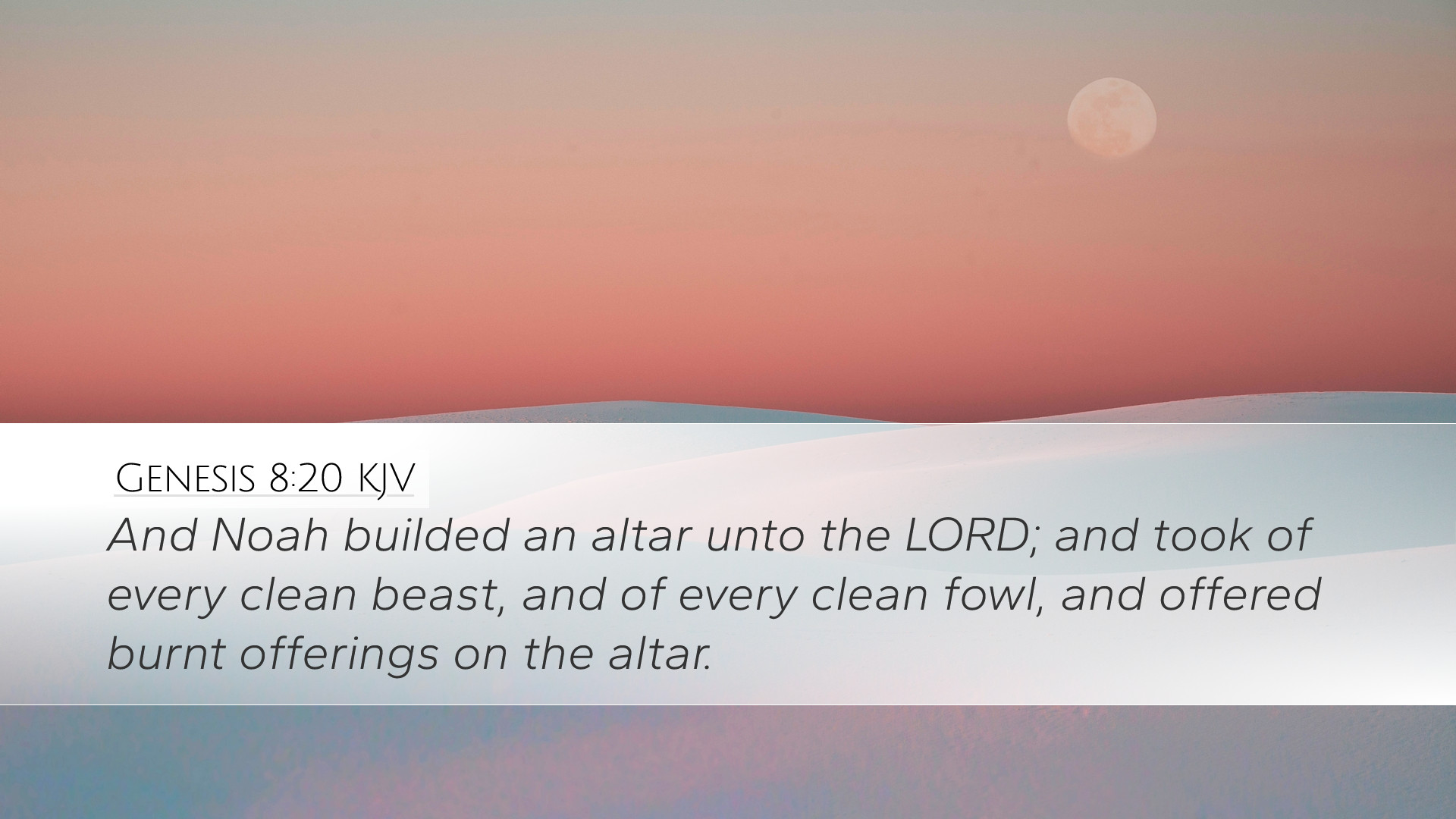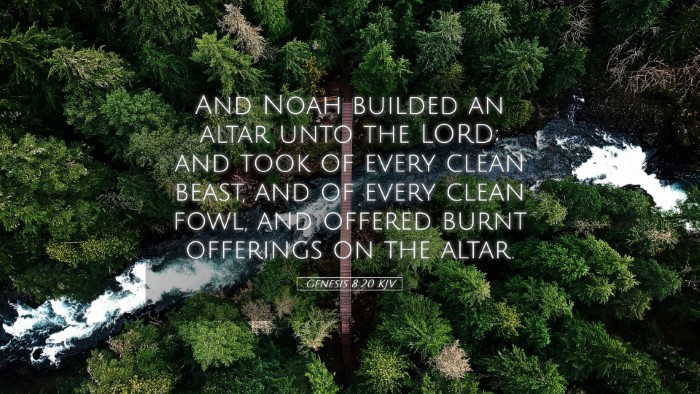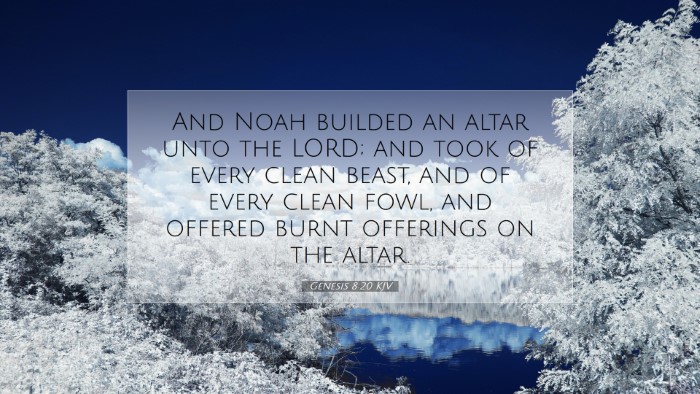Commentary on Genesis 8:20
Verse Reference: Genesis 8:20 - "Then Noah built an altar to the Lord and took of every clean animal and of every clean bird and offered burnt offerings on the altar."
Introduction
This pivotal verse occurs just after the floodwaters recede and marks a significant moment of worship and covenant relationship between Noah and God. The act of building an altar and offering sacrifices reflects Noah's gratitude, reverence, and acknowledgment of God's mercy. This commentary draws from insights by Matthew Henry, Albert Barnes, and Adam Clarke, offering a comprehensive look at the theological implications and historical context of this scripture.
The Significance of the Altar
1. A Response of Worship
Matthew Henry emphasizes that Noah's first action after emerging from the ark was worship, illustrating the importance of setting our priorities correctly after experiencing God's deliverance. This reflects a heart attuned to divine grace, highlighting the necessity of gratitude in our faith journey.
2. The Nature of Sacrifice
Albert Barnes points out the specific mention of "clean animals" as significant, as it indicates Noah's adherence to God's commands regarding cleanliness. This act not only signifies obedience but also foreshadows the later Levitical laws regarding sacrificial offerings. The selection of clean animals underscores the seriousness of the worship and the intention to give the best to God.
3. A New Beginning
Adam Clarke notes that this act of sacrifice also symbolizes a new beginning for humanity post-flood. It demonstrates a restoration of fellowship between God and man, suggesting God’s willingness to enter into covenant once more despite humanity's sinful nature. The altar becomes a physical symbol of this renewed relationship, emphasizing God's grace and mercy.
The Theological Implications
1. The Essence of Worship
Worship is intrinsic to the human experience as indicated by Noah's actions. Matthew Henry asserts that when God's grace results in deliverance, the proper response must be acknowledgment through worship. This illustrates that the essence of worship is not merely ritual but a heartfelt response to God's goodness.
2. Sacrifice as a Covenant Sign
Barnes highlights that offerings represent a symbolic act of atonement and dedication. The burnt offering, in particular, signifies complete surrender to God, as it is entirely consumed by fire. In a broader theology, this points to the ultimate sacrifice of Christ, reinforcing the theme of redemption through sacrifice in the biblical narrative.
3. The Continual Need for Atonement
Clarke elaborates on the necessity of blood sacrifice for atonement. Noah's act serves as a reminder that humanity will continually require atonement for sins. This foreshadows the sacrificial system established in the Mosaic Law and ultimately leads to the ultimate sacrifice in Jesus Christ, fulfilling the need for atonement once and for all.
Practical Applications
1. Prioritizing Worship in Our Lives
After moments of divine intervention or blessing, we, like Noah, should prioritize worship. This illustrates how we ought to respond to God's grace in our lives through acts of faith and dedication, reinforcing the need for communal and personal expressions of worship.
2. Commitment to Following God's Commands
Noah's selection of clean animals reflects his commitment to obeying God's commands. This serves as an exhortation for believers to seek holiness and obedience in their lives, living in accordance with God's word and being mindful of the areas where they must adhere to divine standards.
3. Cultivating a Heart of Gratitude
The act of offering gratitude through sacrifice encourages us to cultivate a heart that acknowledges God's blessings regularly. This might involve both quiet personal reflection and more public expressions of thanks, whether through testimony, worship, or service to others.
Conclusion
Genesis 8:20 is a profound reflection on the nature of worship and sacrifice. It not only illustrates Noah's immediate response to God's mercy but also sets the stage for understanding the significance of biblical sacrifices throughout salvation history. Drawing on the insights of biblical scholars, the importance of building an altar in our lives, both literally and metaphorically, cannot be understated. As contemporary believers, we are reminded to respond to God's grace through acts of worship, obedience, and sacrificial living.


